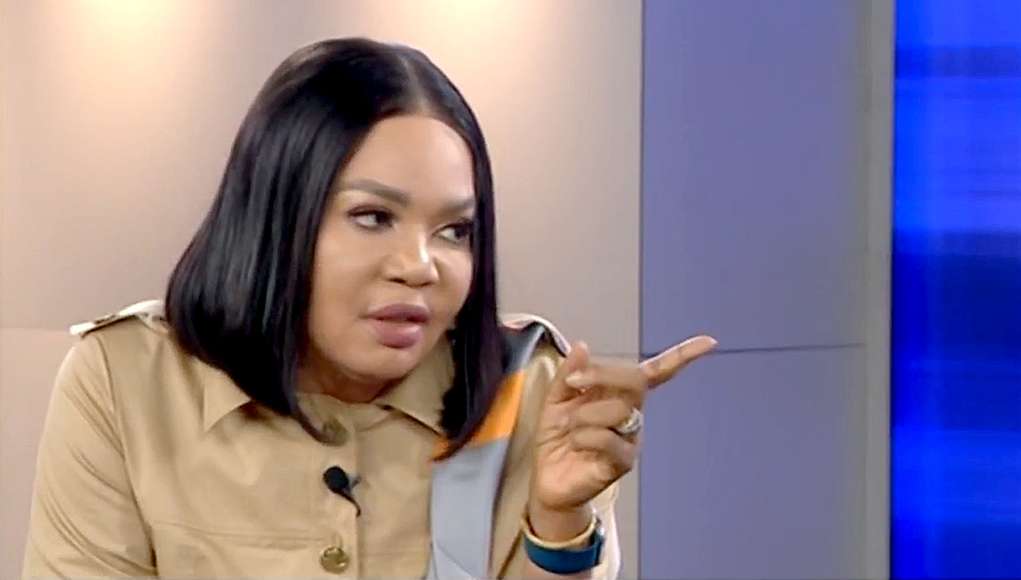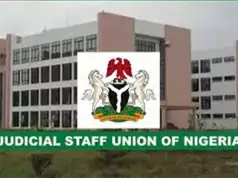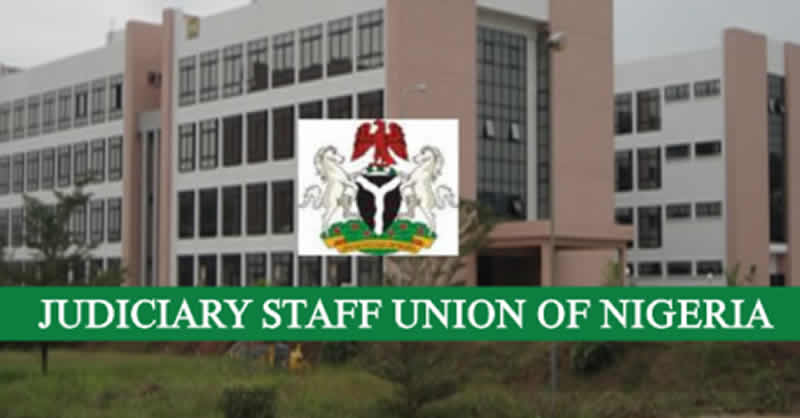The Minister of Labour and Employment, Nkeiruka Onyejeocha, has appealed to the Organised Labour to shelve its ongoing industrial action which has crippled economic activities in the country.
Onyejeocha said the Federal Government is not the sole decider of a new minimum wage as it must be determined by state governments and the Organised Private Sector.
“The Federal Government takes into cognisance that it’s the tripartite committee that would also ensure that if Mr A agrees to pay, he has to pay,” the minister said on Channels Television’s Politics Today programme on Monday, the day 1 of the strike.
According to her, some state governments still can’t pay the ₦30,000 minimum wage agreed by the tripartite committee in 2019 let alone the ₦494,000 wage demand by the Nigeria Labour Congress (NLC) and the Trade Union Congress (TUC).
“Remember that when ₦18,000 minimum wage was agreed upon, certain states couldn’t pay. After that, ₦30,000 minimum wage, some states couldn’t pay as we speak. So, it’s not something you decide for people… the Federal Government does not have that power to impose,” she said.
Onyejeocha said “the ₦494,000 is highly impossible” as the new minimum of the country, fearing that many businesses won’t be able to cope with the payment of such a wage and that it would lead to massive job losses.
The minister said the economic loss of the strike in the last 24 hours have been huge as businesses, airports, universities, hospitals and power supply were affected.
Onyejeocha said with the “hardship” inflicted on Nigerians in the last 24 hours since the strike commenced, labour should rescind its decision, suspend the strike and come back to the negotiation table to arrive at a realistic wage for workers in the country.
She said the new minimum wage must match the productivity and affordability of the private sector and not just be agreed upon and announced to gratify labour.
She argued that beyond the agreement on a new living wage, the place of sustainability in payment by all members of the tripartite committee must be considered.
The labour minister appealed to the aggrieved unions to consider the ₦60,000 offer by the government and the Organised Private Sector, saying the ₦494,000 demand by the Organised Labour would push up Nigeria’s inflation beyond the current 33.69%.
Onyejeocha said the Federal Government is not unserious about the matter as implied by the labour unions, adding that the government is committed to giving the country a new and realistic minimum wage.
Impasse
Both NLC and TUC said the current minimum wage of ₦30,000 can no longer cater to the well-being of an average Nigerian worker, lamenting that not all governors are paying the current wage award which expired in April 2024, five years after the Minimum Wage Act of 2019 was signed by former President Muhammadu Buhari. The Act should be reviewed every five years to meet the contemporary economic demands of workers.
Labour later handed the Federal Government a May 31 deadline for the new minimum wage. On May 31, the workers’ organs in the country declared a nationwide strike beginning on Monday, June 3, 2024, over the government committee’s inability to agree on a new minimum wage and reversal of the electricity tariff hike.
During the failed talks with the government, Labour rejected three government offers, the latest being N60,000. The TUC and the NLC subsequently pulled out of negotiations, insisting on ₦494,000 as the new minimum wage.
Last-minute talks between labour leaders and the leadership of the National Assembly failed on Sunday night as the Organised Labour said there was no going back on the industrial action.
Meanwhile, the Minister of Finance and Coordinating Minister of the Economy, Wale Edun, said the workers’ demands are not affordable.
Channels TV










